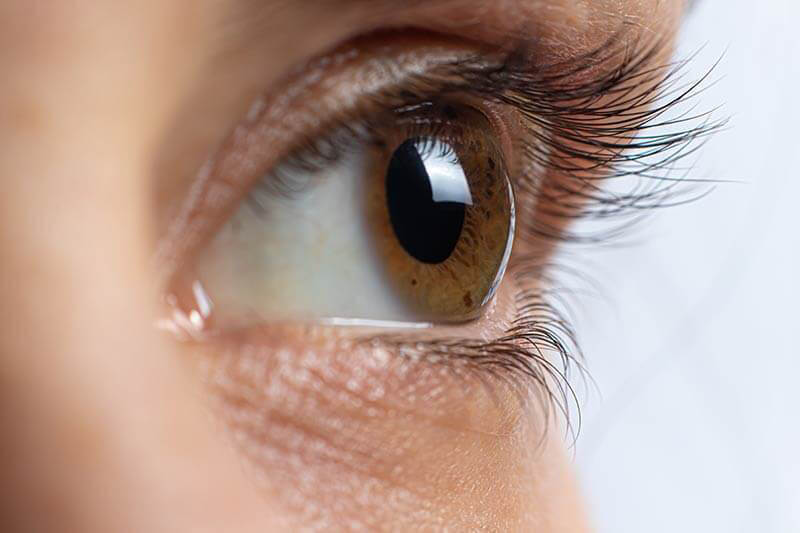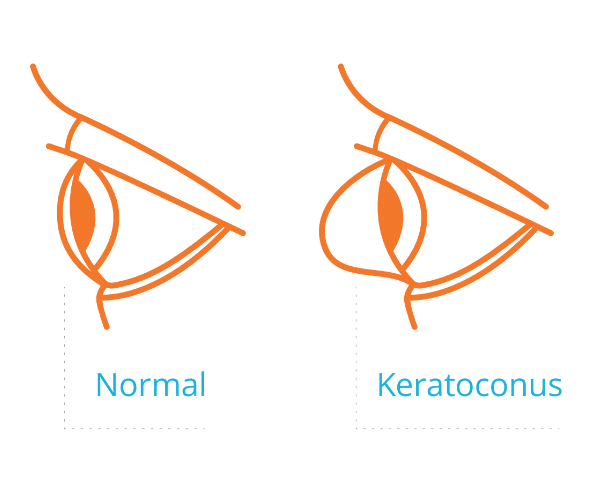
Keratoconus is a progressive eye condition where the cornea, which is usually round, begins to thin and bulge into a cone-like shape.
Keratoconus is a disease of worsening near-sightedness and astigmatism that typically affects adolescents and young adults. The disease affects the shape and strength of the cornea (the clear dome-shaped front layer of the eye that focuses light). In keratoconus, the cornea becomes steeper and irregular (less round), taking on a conical shape as the disease progresses.
Keratoconus patients find they can see well in rigid or toric contact lenses but not their glasses. Many patients with keratoconus rub their eyes, which may speed the rate at which keratoconus progresses. The symptoms include the following:

If you think you may have keratoconus, ask your eye care provider to perform a corneal topography. If they do not have one available, request a visit with an ophthalmologist that does have one. This test, which maps the cornea, is the gold standard for diagnosing keratoconus, and it is also a method for following progression.
To schedule an appointment to determine if you have keratoconus, call 215-339-8100 and ask for a corneal consultation for keratoconus with Dr. Brad H Feldman.
The treatment for progressive keratoconus is called Corneal Collagen Crosslinking. Corneal Collagen Crosslinking is a highly effective treatment for stopping vision loss from keratoconus. The technique utilizes a specialized UV light source and a photosensitizer, riboflavin (vitamin B2), to strengthen and stiffen an otherwise weak, floppy, and misshapen cornea. Click here to learn more about Corneal Crosslinking.
8025 Roosevelt Blvd.
Philadelphia, PA 19152